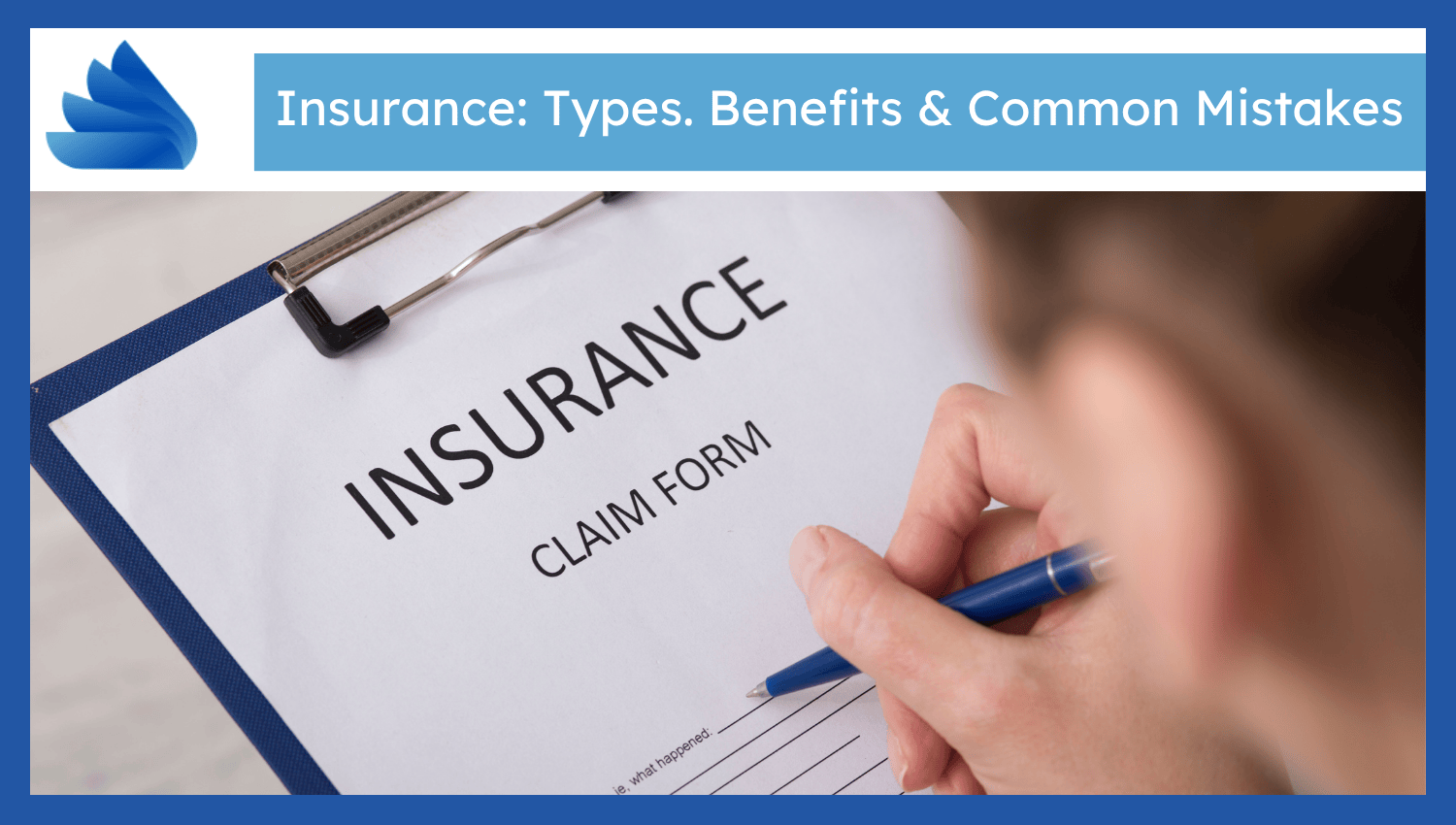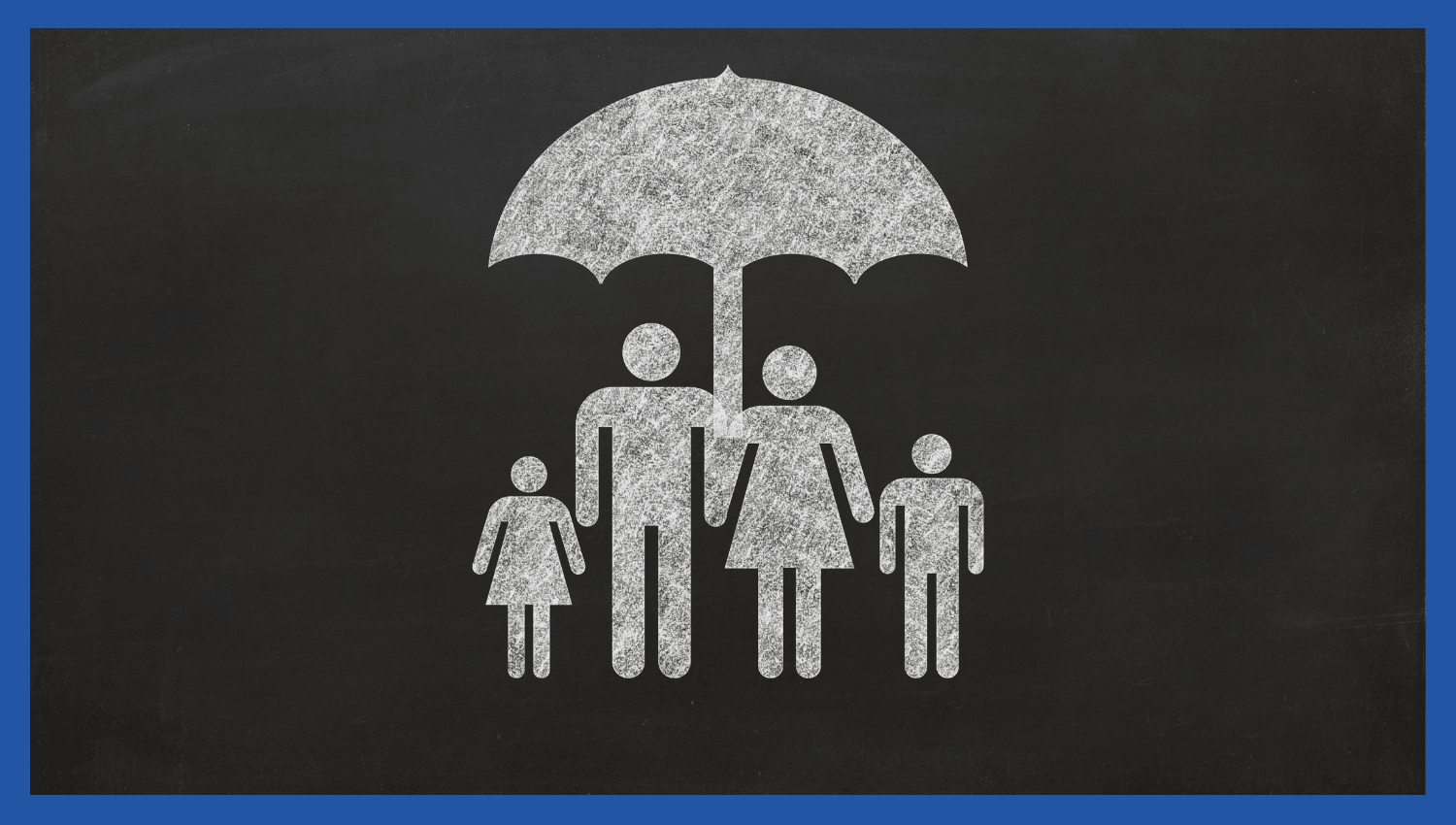
Insurance: Types. Benefits & Common Mistakes
Insurance is an agreement between you and the insurance company to protect against unexpected losses. Its main purpose is to transfer financial liability for accidents, theft, illness or damage from the insured to the insurer. It helps people and businesses remain financially stable in case of unexpected events. An individual or business purchases a policy and regularly provides premiums to the insurance company. The agreement also ensures that the insurer covers particular risks outlined in the policy. When a person experiences a loss, they can claim to get paid by the insurance provider. It helps businesses and individuals to cope with economic and health problems and bounce back quickly.
What are the Main Types of Insurance?
Here are the 5 main types of insurance:- Health Insurance
- Life Insurance
- Auto Insurance
- Homeowners/Renters Insurance
- Business/Commercial Insurance
Health Insurance
Health insurance is a contract that covers the cost of medical treatment in case of illness, injury or surgery of the insured individual. The insurance company covers expenses such as hospital stays, medicine costs, lab tests, and doctor visits. The policyholder, on the other hand, pays a regular fixed amount, known as a premium. It reduces financial stress during health emergencies by sharing medical costs. Health insurance helps you to focus on your health without the stress of large medical bills.Life Insurance
Life insurance gives financial assistance to beneficiaries after the policyholder dies. You can buy term life insurance for periods such as 10, 20 or 30 years, and it is great for covering certain factors like a loan. Buying life insurance for your lifetime can help you save money. Life insurance is purchased to replace lost income, deal with debts and provide support to your dependents. It ensures families can maintain stability and meet long-term needs in the absence of the main earner.Auto Insurance
Auto insurance helps drivers pay financial losses that come from accidents, theft or any damages. The coverage usually includes damage, crashes, and full claims. Policies also cover medical fees for unlisted drivers who use your car with your permission. Since millions of car accidents are reported every year, insurance helps pay for legal and repair costs. Auto insurance gives you confidence on the road and protects against big or small accidents.Homeowners/Renters Insurance
A homeowner's insurance policy protects against damage from fires, storms and theft. It covers the building, personal property and insurance in case a person is hurt on the property. People who rent their homes can purchase renters' insurance for similar reasons. Both types can offer coverage for temporary housing if you need it as your home is being repaired. A homeowner's insurance policy provides the cost of replacing or repairing a damaged or destroyed home.Business/Commercial Insurance
Business insurance covers companies in case of accidents, legal claims or damages to their property. It offers general liability, protection of property and workers’ payment coverage. Businesses choose to have extra protection for data breaches, broken equipment or income loss. Commercial insurance provides help during unexpected shutdowns of operations. It gives companies protection from legal issues and operational difficulties and supports risk management in all industries.What are the Benefits of Having Insurance?
The following are the 3 main benefits of having insurance:- Financial protection
- Legal and contractual requirements
- Better care/services
Financial Protection
When an accident, illness or property loss happens, insurance helps protect your finances. Insurance allows people to pay regularly and get covered when unexpected emergencies occur. It ensures that debt is avoided, recovery is speedy, and your finances are kept in order. If a major incident happens, claims can prevent any loss of income, property or savings.Legal and Contractual Requirements
Auto insurance is still required by law in many places. Landlords, lenders and regulatory offices want certain forms of insurance before agreeing to lease, lend or facilitate business activities. They are legal documents that validate safety and security. They assist in meeting regulatory standards, avoid breakdowns or lawsuits and keep everyone involved safe.Better Care/Services
An insurance policy allows clients to use the services of approved service providers, hospitals or repair centres. Regular checkups, lab tests and emergency care are included in most health plans. It allows governments to respond rapidly, avoid delays and rely on reliable support provided by active policies and networks.How to Choose the Right Insurance Plan?
Here are the 4 steps for selecting a plan that aligns with your needs:- Know what you need
- Weigh cost vs coverage
- Understand the details
- Choose a trusted provider
Know What You Need
Make sure to assess risks connected to your lifestyle, your assets, your health and your financial duties. People who work for themselves and those who are salaried can have different types of benefits and types of risks. Creating a plan that fits your situation guarantees good protection. Make a list of what matters most, such as medical, auto or home insurance, to determine what policy is right for you.Weigh Cost vs Coverage
Check both the price and the benefits offered by different insurance policies. A cheap plan that provides little coverage can lead to bigger losses after you make a claim. Review the insurance's limits for claims and the situations where it doesn't apply. Try to find a plan that is affordable and useful. Insure yourself against key risks first, and then add extras if budget is not a problem.Understand the Details
Look at every part of a policy, even the small print. Be aware of the restrictions, timelines for coverage, claims procedure and renewal process. Policies don’t cover certain meetings or have limits on reimbursements. Make sure that the benefits you expect are included in the policy before you purchase it.Choose a Trusted Provider
Pick insurance companies that have handled claims well, receive positive reviews from customers and are properly licensed. If a provider has a strong financial rating, is always available to help and is fast to handle claims, that means better service for you. Experience and open policies are signs of a reliable company.What are the Common Mistakes to Avoid?
Below are the 3 common insurance mistakes that often lead to issues:- Underinsuring or overinsuring
- Ignoring exclusions
- Not updating policies regularly


